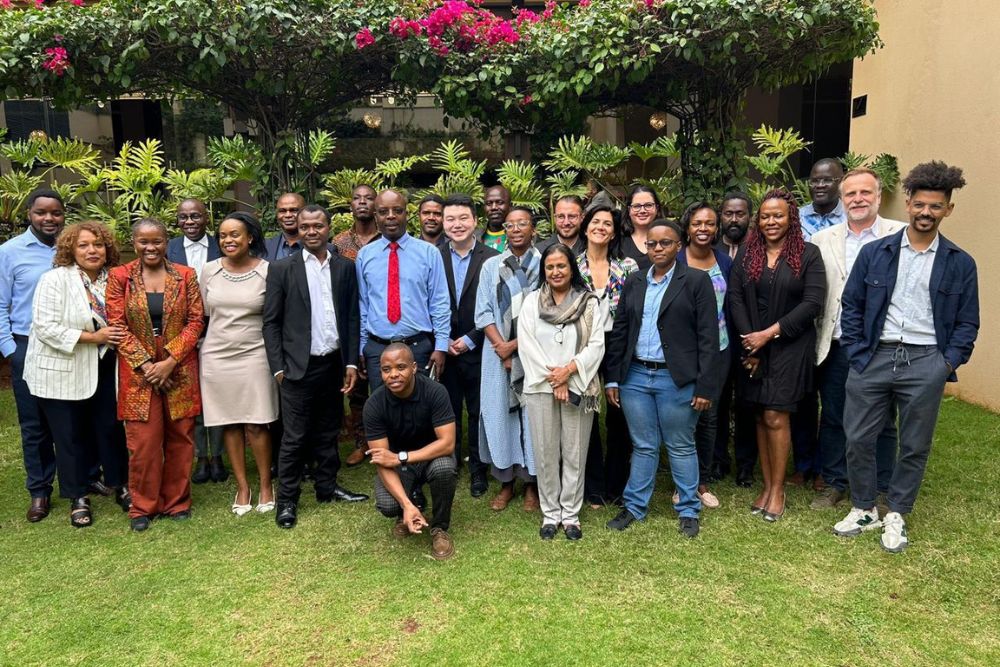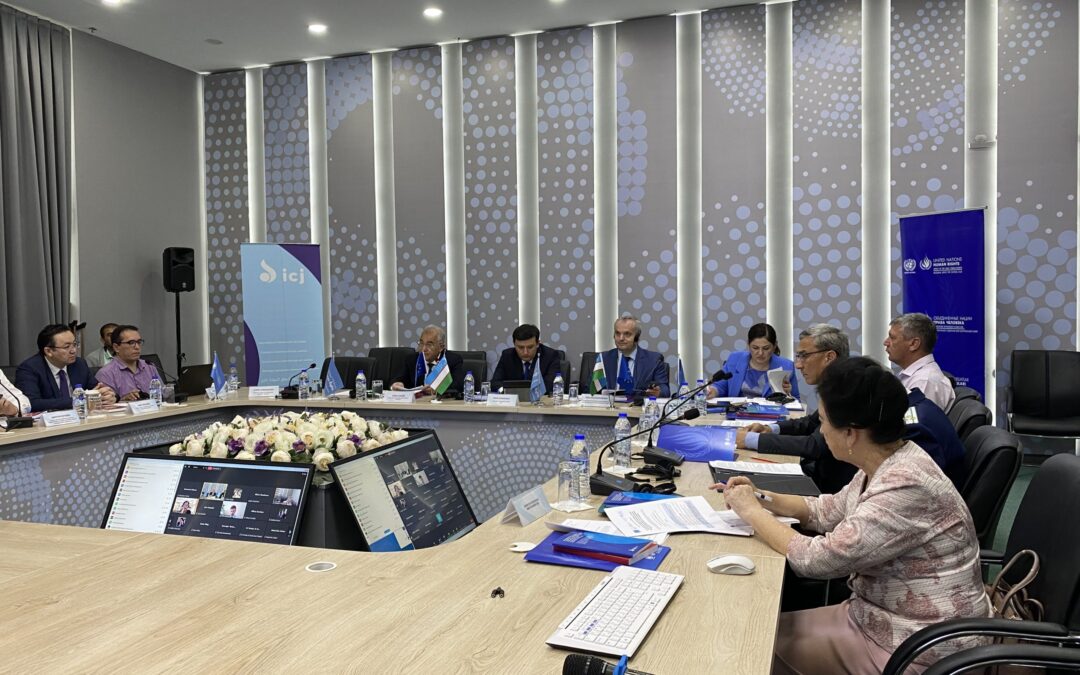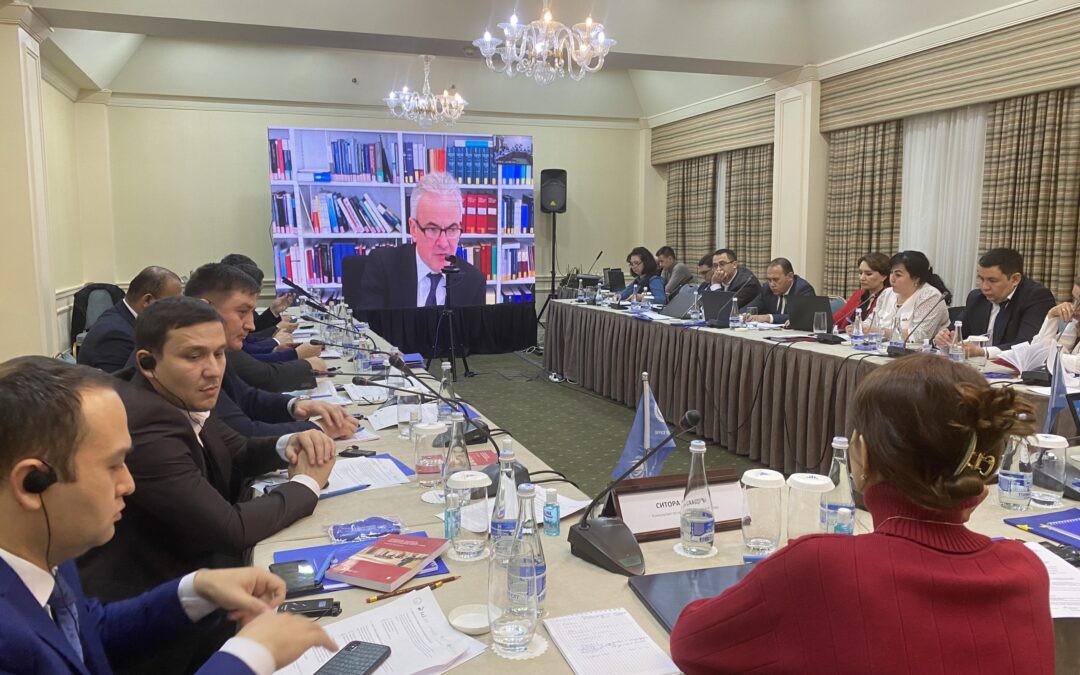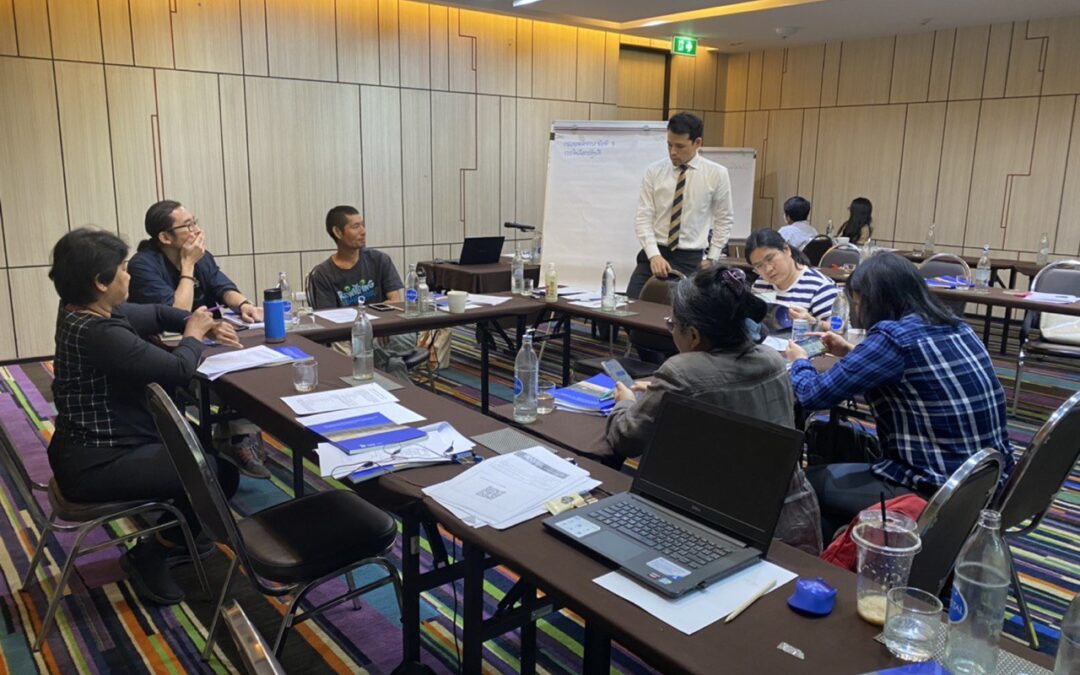
Jun 12, 2024 | Events, News
On 5 and 6 June 2024, the International Commission of Jurists (ICJ) and its partners – the Institute of Commonwealth Studies and the Commonwealth Secretariat – held an Africa regional consultation on a human rights-based approach to criminal law with stakeholders in Nairobi, Kenya.

May 13, 2022 | News
Today, the International Commission of Jurists (ICJ), the Office of the High Commissioner for Human Rights (OHCHR) Regional Office for Central Asia (ROCA), the Nationwide Movement “Yuksalish” in cooperation with the National Centre for Human Rights of the Republic of Uzbekistan are holding an International Public Discussion on Uzbekistan’s implementation of the latest recommendations of the UN Treaty Bodies in the framework of project “Enhancing the Quality of Uzbekistan’s Application of international Law (EQUAL)” funded by the European Union.

Dec 22, 2021 | News
Judges play a crucial role in ensuring that Uzbekistan implements its international law obligations to protect economic, social and cultural rights, a training seminar for judges in Tashkent, Uzbekistan, heard this week.

Sep 14, 2020 | Advocacy, News
On 13 September 2020 the ICJ hosted a workshop on the impacts on economic, social and cultural rights associated with the development of Special Economic Zones (SEZs) in Thailand. Lawyers, members of civil society organizations and academics from across Thailand attended the Workshop.
The event began with an introduction to ICJ’s report – the Human Rights Consequences of the Eastern Economic Corridor and Special Economic Zones in Thailand – and outlined the deficiencies in the legal and regulatory framework governing economic development in Special Economic Zones and the Eastern Economic Corridor.
During the group discussions, participants were introduced to the international laws and standards that are applicable in the context of Thailand and can be applied to allegations of human rights violations and negative environmental impacts. They were urged to use these standards for their advocacy work.
These included economic, social and cultural rights contained in the International Covenant on Economic, Social and Cultural Rights (ICESCR), to which Thailand is a State party and other internationally recognized principles, including:
- Right to an adequate standard of living and housing under article 11 of the ICESCR, General Comments 4 and 7 of the Committee on Economic Social and Cultural Rights and the Basic Principles and Guidelines on Development-Based Evictions and Displacement – which stress the need to provide adequate legal protection from forced eviction, due process, alternative accommodation, and access to an effective remedy of those that are affected by eviction orders;
- Human rights obligations that are exercised in relation to the environment, such as obligation to facilitate public participation in decision making related to the environment, and duties to protect human rights defenders and to conduct the prior assessment of the possible environmental impacts of proposed projects and policies; and
- Rights to and at work under article 6 to 8 of the ICESCR, General Comment No. 19 and 23 of the Committee on the Economic, Social and Cultural Rights, and several ILO Conventions, particularly regarding rights abuses suffered by migrant, seasonal and subcontracted workers, as well as restrictions on freedom to join and form trade unions.
At the conclusion of the Workshop, participants exchanged views on strategies and collaboration for action to mitigate potential impacts of the Special Economic Zones and the Eastern Economic Corridor and to advance the protection of economic, social and cultural rights.
Further reading
Thailand: laws governing development of Eastern Economic Corridor and Special Economic Zones fail to adequately protect human rights – ICJ report
Thailand: ICJ hosts discussion on human rights consequences of Special Investment Zones
ICJ and Chiang Mai University discuss Special Economic Zones in Myanmar and Thailand








